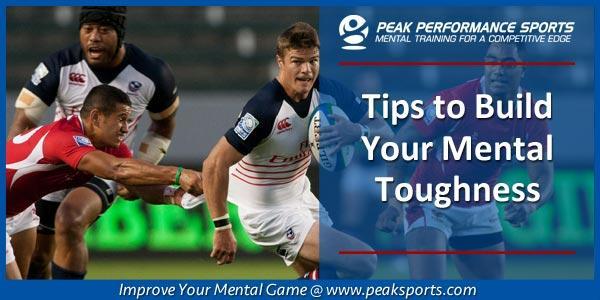
What Is The Reality Of Mental Toughness?
Mental toughness is needed to compete at the highest level and to achieve your max athletic potential.
Mental toughness is a developed skill that allows athletes to push through difficult circumstances without losing confidence and the ability to play at peak levels during crunch-time.
But there is a common question many athletes ask mental coaches: “I play so poorly under pressure but isn’t mental toughness a characteristic that athletes are just born with?”
You see a few basketball players with the knack of sinking the buzzer beaters to win the game…
Or those special baseball players that hit clutch walk-off hits in extra innings…
Or the soccer goal keeper who is able to make the critical game-saving stop to secure victory.
There are four faulty assumptions athletes make regarding mental toughness:
- Mentally tough athletes perform successfully in the clutch every time.
- Since I fall apart under pressure, I will fall apart under pressure every time.
- Mental toughness is an inborn characteristic.
- Either an athlete is mentally tough or they are not.
The reality is “Mental Toughness” is not something you have; it’s something you do. Mental toughness is a skill and skills can be developed.
Mental toughness is learned, just like its opposite, fear.
In fact, we are born with only two fears: fear of falling and fear of loud noises. All other fears are learned.
If we learn fear, we can learn its opposite… mental toughness!
The next question asked by athletes is: “How can I develop mental toughness?”
First of all, mental toughness is not an all-or-nothing proposition (“I’m mentally tough or I’m not mentally tough”). There are varying degrees of mental toughness.
So when you are developing your mental toughness, you need to realize that the process does not happen overnight, but well worth the investment.
Think of physical strength… Physical strength or building muscle requires resistance or weight training. Mental muscle is developed the exact same way by overcoming resistance, obstacles or challenges.
By developing a mental training regimen, taking daily action and having patience, you will be on your way to becoming a mentally tougher athlete.
Try these tips to build your mental toughness skills:
- Tip #1: Define what mental toughness means to you. Select 1-2 mental toughness characteristics that you want to improve (managing emotions, breaking out of your comfort zone, letting go of mistakes). Create a written plan for improvement. Name specific methods and strategies you will use to further develop these specified areas.
- Tip #2: Create a scoring system to evaluate your progress. How exactly will you measure your progress and how often? You can use a letter or number grade once a week or grade yourself after each practice.
Remember that improving your mental toughness is a process. Some days, you may revert back to your old patterns… That is a part of growth. Regroup and work your plan!
Successful athletes have learned to stop performance anxiety and play with ultimate composure. We’ve created The Composed Athlete, Workbook and Program to help you do this.
Related Sports Psychology Articles
*Subscribe to The Sports Psychology Podcast on iTunes
*Subscribe to The Sports Psychology Podcast on Spotify
Download a free sports psychology report to improve your mental game!
Learn more about our one-on-one mental game coaching.
The Composed Athlete

“The Composed Athlete” is presented on 80-minute Audio Programs with a 70-page step-by-step workbook that guides you through the program each day. It’s a complete system for conditioning your mind to have maximum composure in competition.
“The Composed Athlete” was developed for any level coach, parent, or junior to professional athlete who wants to improve performance and gain a competitive edge. It does not matter if you are a fledgling junior athlete; or a seasoned professional, plagued with distractions; or you just wanting to learn how to improve your composure…
